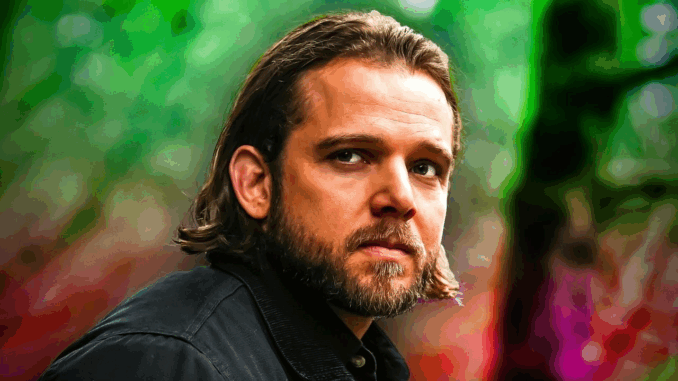
In a genre crowded with superheroes, vigilantes, and elite agents, Fire Country does something rare: it centers its story on a deeply flawed man whose only superpower is his desire to change. Bode Donovan, a former convict turned inmate firefighter, is not just the show’s protagonist—he’s its emotional anchor and moral compass.
Bode’s arc isn’t about saving the world. It’s about saving himself. And that makes his journey one of the most compelling character studies on television today.
A Different Kind of Hero
When we first meet Bode, he’s haunted by guilt, hardened by prison, and resigned to a system that has repeatedly failed him. But beneath that armor lies a man who still believes in redemption—even if he doesn’t believe he deserves it yet.
That tension—between who Bode was and who he’s trying to become—drives the entire series. He joins the Cal Fire inmate firefighter program not as a hero, but as a man desperate for a second chance. His motives are messy. His methods are often reckless. And that’s precisely what makes him real.
In a world where most television leads are either saints or sinners, Bode stands in the middle, torn between past mistakes and present purpose.
Redemption Isn’t Linear
What makes Bode’s journey resonate is how Fire Country refuses to give him an easy redemption arc. He’s constantly stumbling, doubting, and relapsing into old habits. The road to self-forgiveness is messy—and the show never lets us forget that.
He clashes with authority. He keeps secrets. He makes impulsive decisions that put others at risk. But with every failure comes growth, and every setback reveals a layer of his psyche: his abandonment issues, his survivor’s guilt, his fear of being unworthy of love.
Bode isn’t redeemed in a single act of heroism. He’s redeemed by consistently showing up, by risking his life for strangers, by earning the trust of a community that once gave up on him.
Family as Fuel and Friction

A significant part of Bode’s transformation is rooted in his complicated relationship with his parents, Vince and Sharon Leone. Returning to Edgewater means facing more than fires—it means confronting the people he hurt, the promises he broke, and the boy he used to be.
Sharon, his mother and Cal Fire division chief, believes in his potential but fears for his soul. Vince, his father, struggles with the emotional weight of being Bode’s commanding officer and a disappointed dad. These relationships are both lifelines and landmines in Bode’s journey.
The tension between familial duty and personal accountability adds a powerful dimension to Bode’s story. His redemption isn’t just about proving himself to society—it’s about rebuilding the bridge to the people who loved him before he fell.
Fire as Metaphor for Transformation
Every fire Bode fights becomes a metaphor for his inner struggle. The flames he faces are external symbols of the anger, shame, and self-loathing burning inside him. He doesn’t just fight fires—he learns from them.
In episode after episode, fire becomes a crucible for change. Bode emerges from the smoke not just soot-covered, but a little wiser, a little braver, a little more whole.
The fire is relentless—but so is he.
A New Definition of Masculinity
Bode’s vulnerability is perhaps his greatest strength. He cries. He apologizes. He admits when he’s afraid. And yet, he’s one of the most courageous men in the show.
Fire Country uses Bode to challenge traditional notions of masculinity. He’s not the alpha male barking orders or the stoic soldier swallowing pain. He’s raw, expressive, and constantly evolving.
In doing so, the show offers a healthier model of manhood, where courage is emotional as well as physical, and strength includes the willingness to heal.
Why His Story Matters
Bode’s arc speaks to something many viewers relate to: the desire to be seen for who we are becoming, not who we were. His journey is a powerful reminder that people are not defined by their worst decisions—and that redemption, though hard-earned, is always possible.
In a time when criminal justice reform and second chances are hot-button issues, Bode’s story offers nuance. He’s not glorified. He’s not pitied. He’s held accountable—but he’s also allowed to grow.
That balance is what makes Fire Country more than a firehouse drama. It makes it a story of hope in a system designed to extinguish it.
